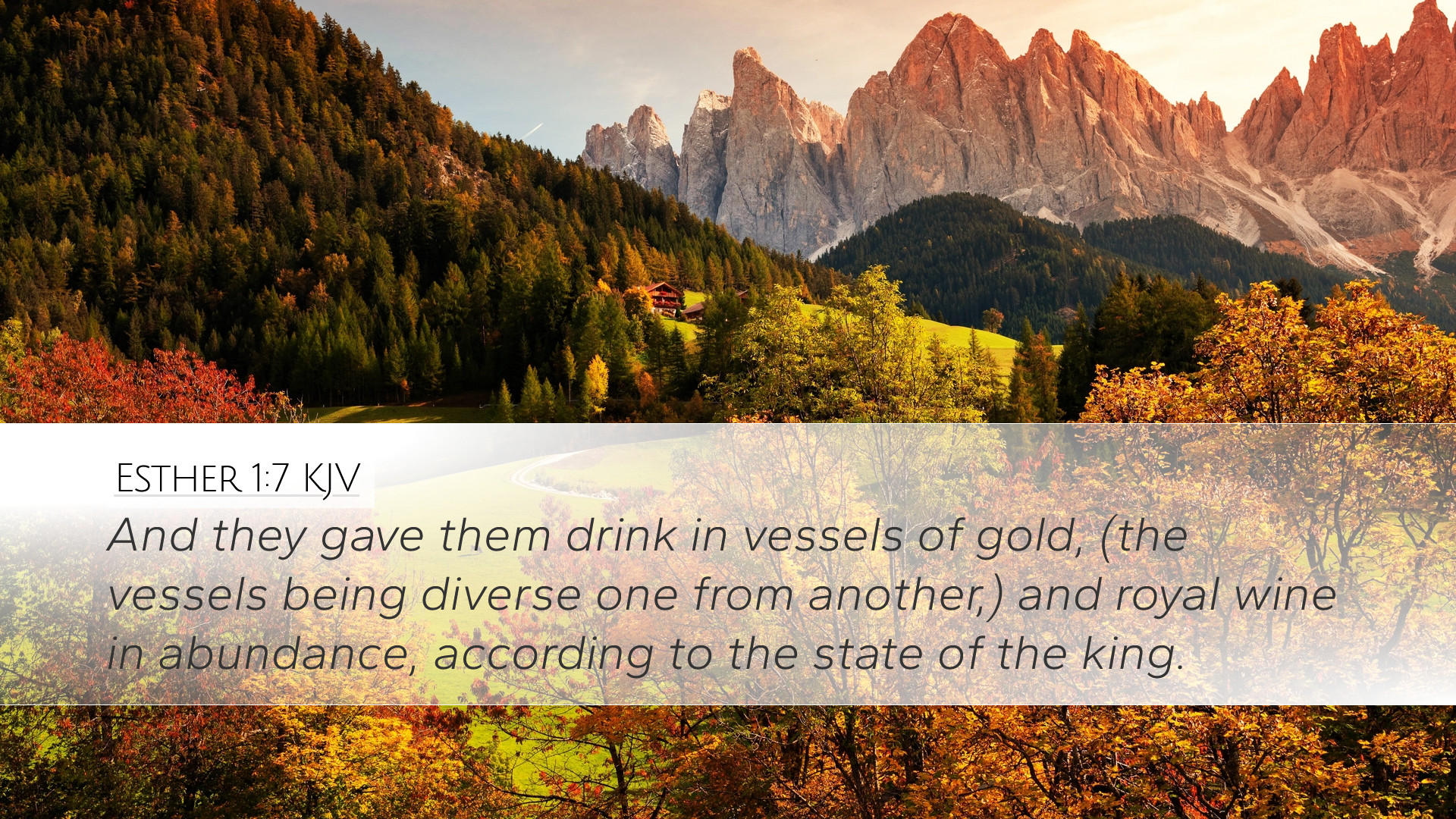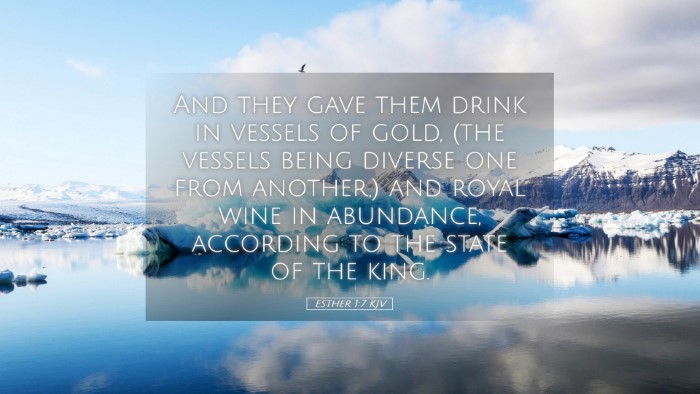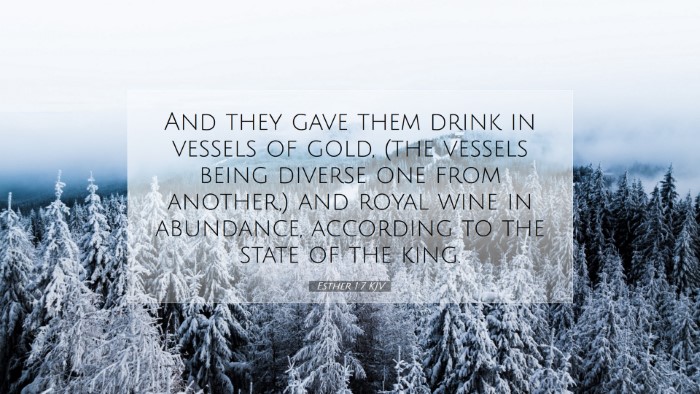Old Testament
Genesis Exodus Leviticus Numbers Deuteronomy Joshua Judges Ruth 1 Samuel 2 Samuel 1 Kings 2 Kings 1 Chronicles 2 Chronicles Ezra Nehemiah Esther Job Psalms Proverbs Ecclesiastes Song of Solomon Isaiah Jeremiah Lamentations Ezekiel Daniel Hosea Joel Amos Obadiah Jonah Micah Nahum Habakkuk Zephaniah Haggai Zechariah MalachiEsther 1:7
Esther 1:7 KJV
And they gave them drink in vessels of gold, (the vessels being diverse one from another,) and royal wine in abundance, according to the state of the king.
Esther 1:7 Bible Commentary
Bible Commentary on Esther 1:7
Text of Esther 1:7 (KJV): "And they gave them drink in vessels of gold, (the vessels being diverse one from another) and royal wine in abundance, according to the state of the king."
Introduction
The passage of Esther 1:7 serves as a vivid representation of royal extravagance and the dynamics of power in ancient Persia. This commentary seeks to unpack the implications of this verse using insights from public domain commentaries by renowned theologians Matthew Henry, Albert Barnes, and Adam Clarke. Through this analysis, we aim to address the textual, cultural, and theological layers present in the narrative.
Cultural Context
The lavish displays of wealth, particularly found in royal courts, were a hallmark of ancient Near Eastern governance. This verse provides a glimpse into the opulence that defined King Ahasuerus's reign and the social customs surrounding feasts and celebrations.
Matthew Henry's Insights
Matthew Henry emphasizes the grandeur of the royal banquet and the significance of the vessels used for drinking. He notes the following points:
- Symbol of Status: The vessels of gold represent not just material wealth but also the status associated with the king’s court. Each vessel being diverse suggests the variety in wealth and the personalization of royal extravagance.
- Royal Wine Abundance: The abundance of royal wine can be interpreted as a reflection of the king's power and the celebration of his reign, establishing a sense of hospitality and an invitation to revelry.
Albert Barnes' Commentary
Albert Barnes approaches this verse with a focus on the king's authority and the societal implications of such a feast:
- Authority of the King: The king's ability to provide lavish feasts underscores his wealth and authority, positioning him as a figure of immense power in the eyes of his subjects.
- Social Stratifications: The context of this feast reveals the social hierarchies at play within the empire. The rich displays of opulence would have likely served to reinforce the king's divine right to rule and intimidate potential adversaries.
Adam Clarke's Perspective
Adam Clarke provides a more detailed contextual understanding of the beverages and the significance of their variety:
- Diverse Vessels: Clarke notes that the diversity of the vessels not only highlights the wealth but symbolizes the inclusivity of different cultures within the Persian Empire. This diversity suggests that the king brings together various nations under his rule.
- Implications for Worship: Clarke posits that the lavishness of the banquet parallels certain approaches to worship, where abundance is sometimes mistakenly equated with divine favor. This reflects a warning against materialism in spiritual practices.
Theological Implications
The theological richness of Esther 1:7 can be viewed through several lenses that foster deeper reflection among pastors, students, and theologians:
- The Nature of God’s Sovereignty: Even amidst the displays of human power and wealth, God’s overarching sovereignty is a constant theme throughout the Book of Esther. The grandeur of Ahasuerus stands as a backdrop against which God's providence unfolds.
- Human vs. Divine Wealth: The contrast between earthly riches and spiritual wealth invites believers to introspect on what is truly valuable. Material abundance can often lead to spiritual impoverishment if not anchored in God’s truth.
Conclusion
Esther 1:7 serves as a powerful reminder of the complexities within human governance and the intersection of culture, power, and faith. By examining the opulent details of Ahasuerus's feast, we unveil broader truths about authority, identity, and divine sovereignty. As we engage with this text, we are called not only to recognize the beauty of God’s providential hand at work through the realms of human society but also to seek deeper connections with the spiritual truths that guide our understanding of wealth and purpose.


